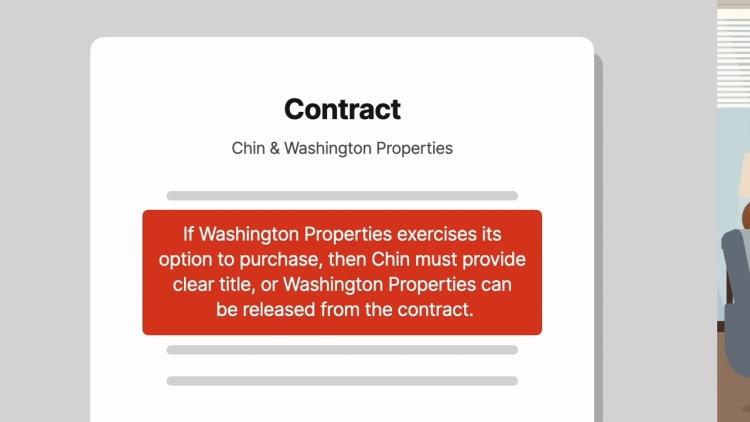Washington Properties, Inc. v. Chin, Inc.
District of Columbia Court of Appeals
760 A.2d 546 (2000)

- Written by Kate Luck, JD
Facts
Chin, Inc. (plaintiff) and Washington Properties, Inc. (WPI) (defendant) entered into a contract in which Chin gave WPI an eight-year option to purchase property in exchange for a series of payments. The contract included a provision stating that Chin would obtain its lender’s consent to be bound by the option contract (the lender-consent provision). This provision did not contain conditional language or provide repercussions for Chin’s failure to comply. The provision’s purpose was to ensure that WPI would retain the option to purchase the property for eight years even in the event of foreclosure by Chin’s lender. However, the property was not under threat of foreclosure. The contract also contained other provisions with explicit conditions, such as that Chin would provide clear title to the property if WPI exercised the option to purchase it or else WPI could choose to be released from the contract. WPI made an initial payment of $20,000 to Chin upon signing the contract. However, Chin was unable to secure the lender’s consent to be bound by the contract, and WPI refused to make any more payments. Chin sued WPI for breach of contract. The trial court granted summary judgment to Chin. WPI appealed, arguing that there was a factual dispute as to whether the lender-consent provision was a condition precedent, the nonoccurrence of which excused WPI’s performance. WPI also argued that if the court found the provision not to be an express condition, the court should impose a constructive condition.
Rule of Law
Issue
Holding and Reasoning (Glickman, J.)
What to do next…
Here's why 911,000 law students have relied on our case briefs:
- Written by law professors and practitioners, not other law students. 47,100 briefs, keyed to 997 casebooks. Top-notch customer support.
- The right amount of information, includes the facts, issues, rule of law, holding and reasoning, and any concurrences and dissents.
- Access in your classes, works on your mobile and tablet. Massive library of related video lessons and high quality multiple-choice questions.
- Easy to use, uniform format for every case brief. Written in plain English, not in legalese. Our briefs summarize and simplify; they don’t just repeat the court’s language.





